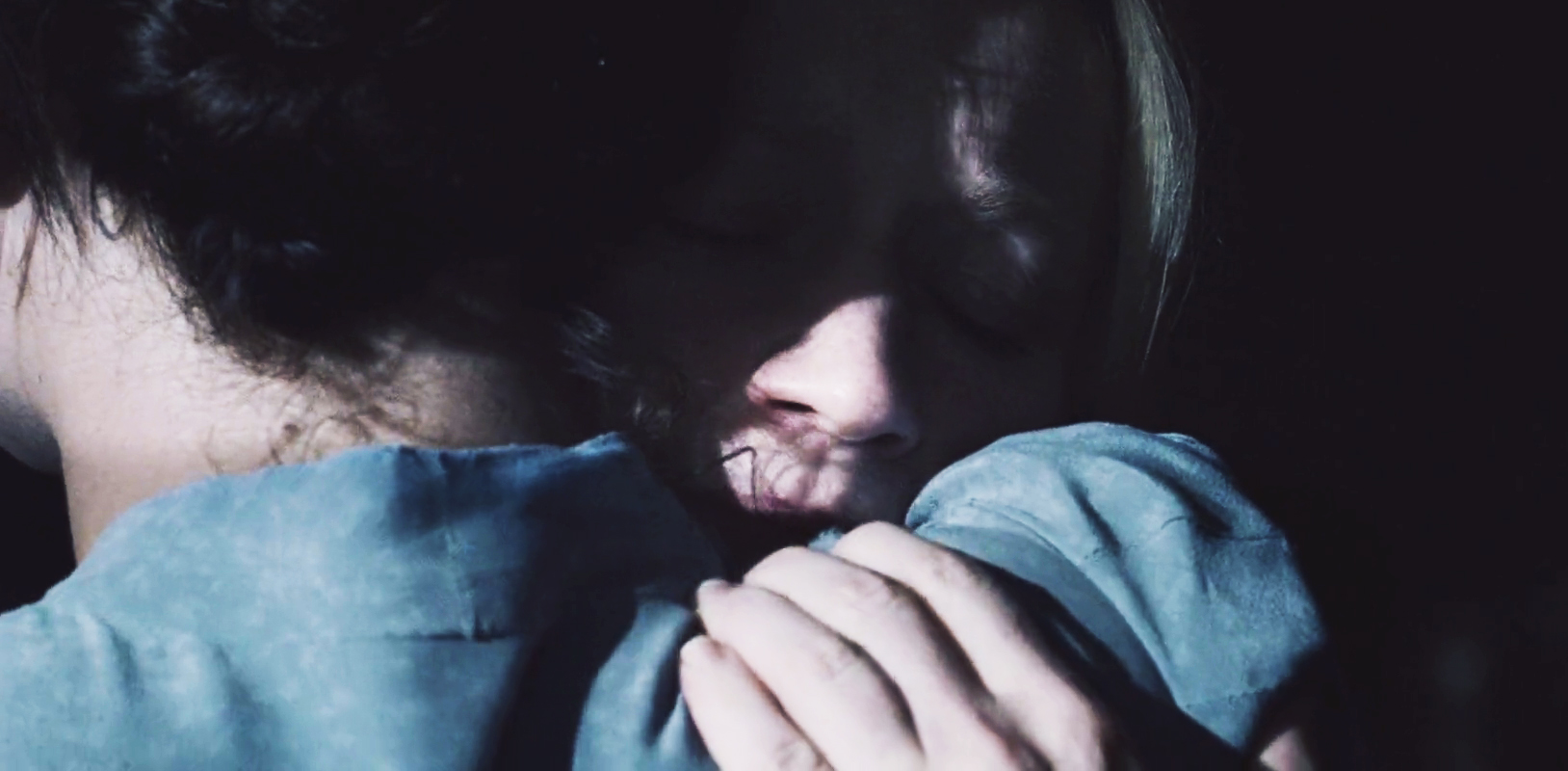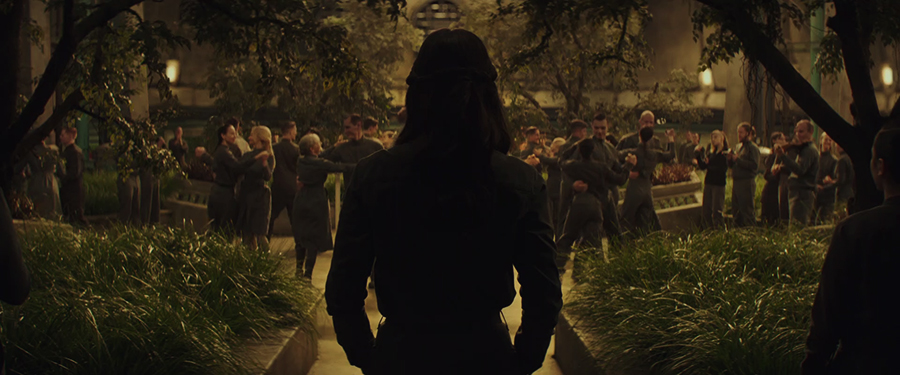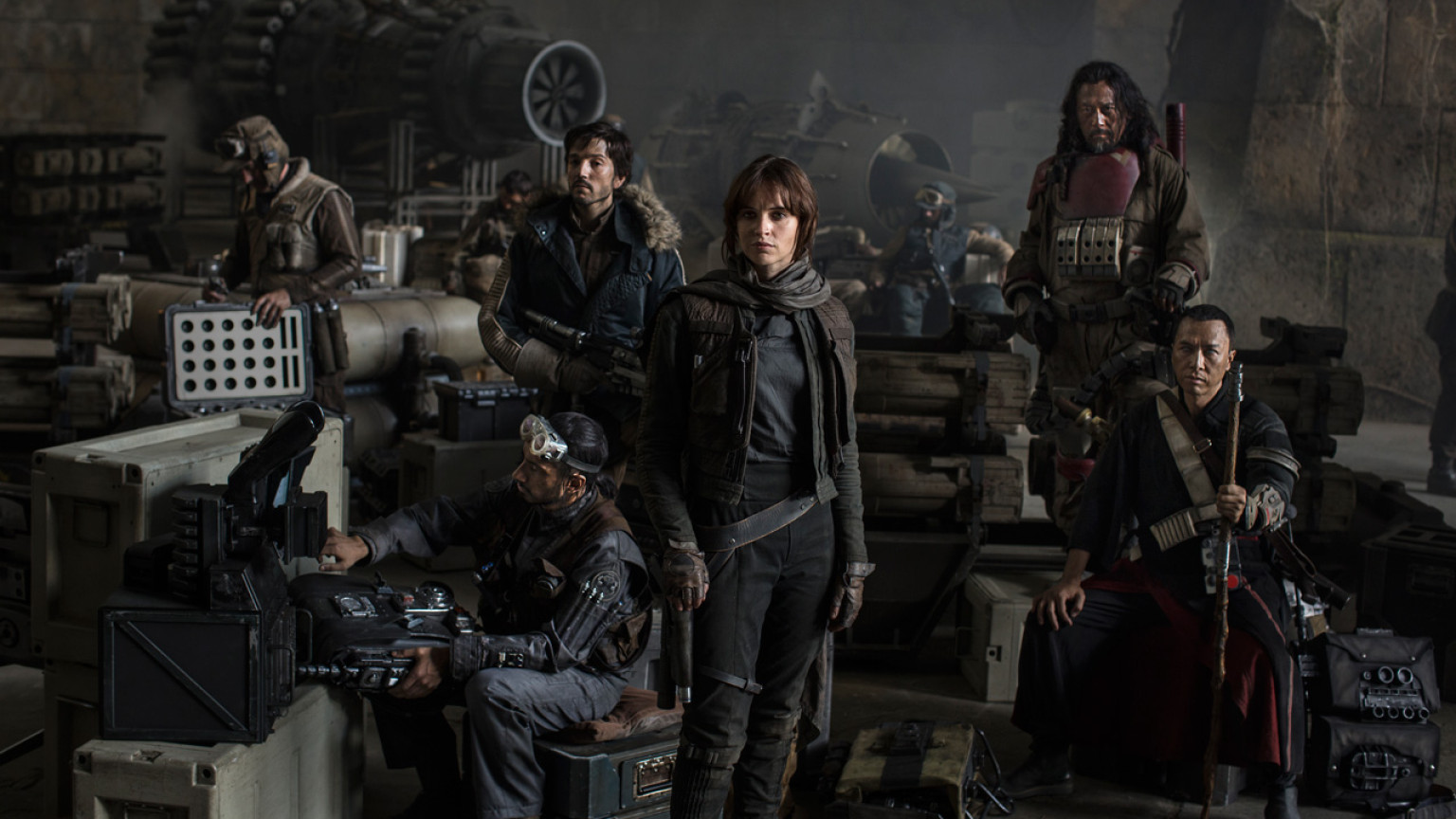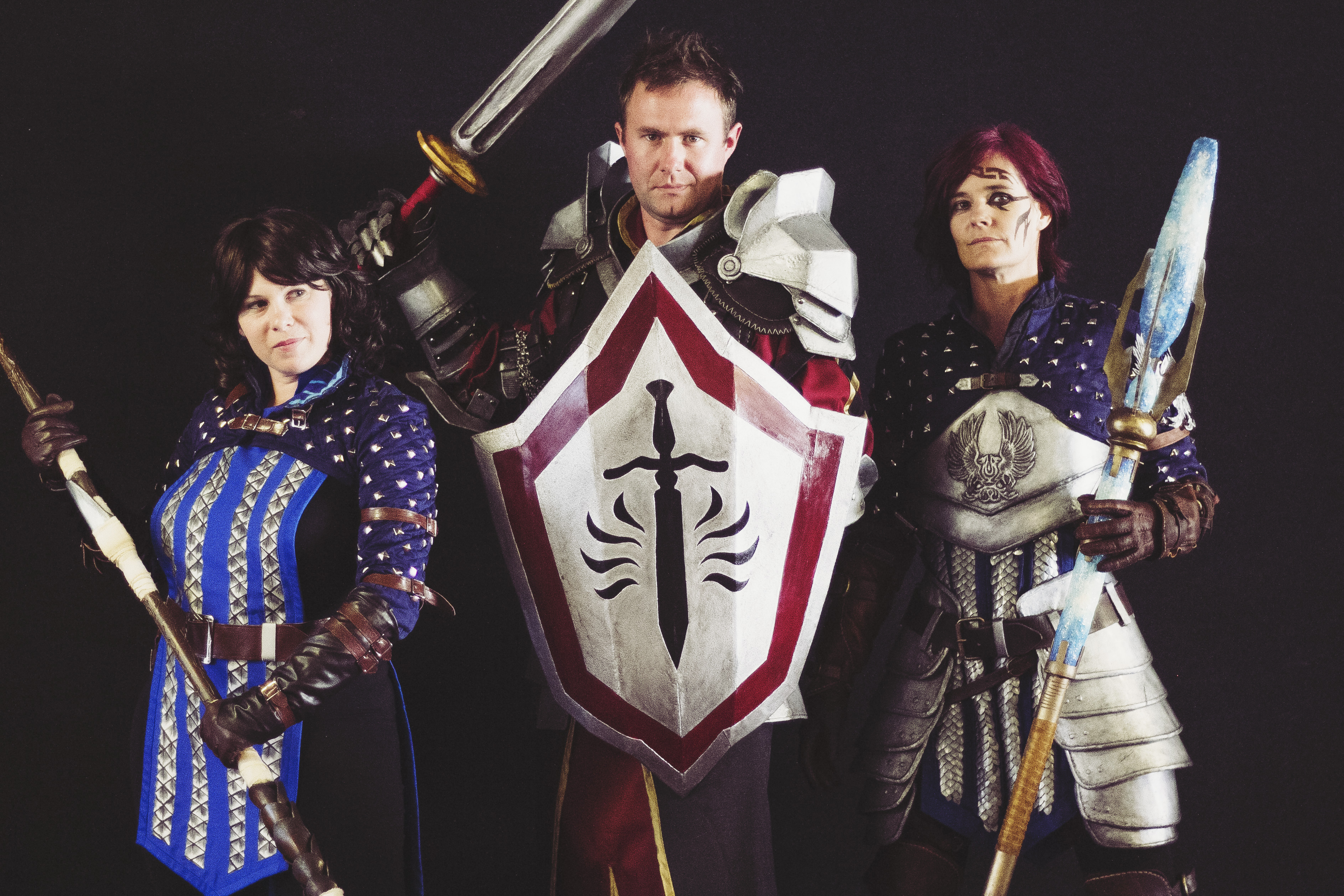
Start With What You Know Is True: Mental Health in The Hunger Games
In the real world, mental illnesses affect millions of people, and yet there’s often a silence surrounding the issues, brought on by social stigmas and a lack of education on mental health. Depression, post-traumatic stress disorder, and anxiety and panic disorders are prevalent within The Hunger Games, experienced by Katniss Everdeen and those around her. The trilogy highlights just how much trauma can affect people, especially the young adults and children manipulated by those much older.
While the novels are far more adept at portraying the characters’ understanding of and struggles with their respective illnesses, the films do make an effort. The opening scene of Catching Fire, where Katniss hallucinates another tribute from the Games while hunting with Gale, visually captures the nightmares of the arena that plague Katniss, setting up the audience’s understanding of her mental state following the 74th Hunger Games. The majority of Katniss’ interior struggles, however, are found within the pages of the books.
The situations that damage Katniss, Peeta, Haymitch, and other victors shown within the series are fictional, but their subsequent conditions are very real and relatable—and it’s not just the Games that harm the people of Panem. Katniss’ nameless mother is shown to have had depression many years prior to the first book, caused by the loss of her husband, Katniss’ father, in a mine explosion.
Her depression leeches her will to live, nearly killing her entirely family, and creates a rift between her and Katniss. For the entirety of The Hunger Games, Katniss struggles with her resentment towards her mother, not understanding just how debilitating depression can be until Catching Fire. Katniss, like many young adults in the real world, has never been educated about mental health.
When experiencing depression from the outside, and with her mother unable to verbalize her illness until much later on, Katniss doesn’t have the ability to understand just how hard it was for her mother to face each new morning. The damage caused to their relationship is relatable for so many in the real world who have watched a parent struggle with mental illnesses, with no understanding of what their loved one is going through as they’re hurt by their parent’s actions.

Katniss herself experiences severe anxiety related to her father’s death for most of her life, recalling how she used to make herself so sick at the thought of entering the mines during school trips that her mother would keep her home, thinking she had caught the flu. However, it’s not until much later on, after losing Prim in Mockingjay, that Katniss goes through the same life-sucking depression as her mother, becoming suicidal while kept in confinement during her trial.
She is so young, not even an adult, when she loses her will to go on. Younger still, when she first deals with panic attacks. Still young, when she begins to find her way back with the help of those who love her.
Unfortunately, her damaged mental health in her childhood and her teen years isn’t unrealistic. The idea that childhood is happy is a misplaced one; depression doesn’t discriminate by age, and many young people in our world grapple with mental illnesses that nobody will talk about. Like Katniss, they don’t understand just how dangerous their own brains can become to them.
A reason Katniss may be so identifiable for young adults, and especially young women, isn’t her fight against the Capitol, but against her own mind and body. Adolescent girls tend to have a higher prevalence of depression, and are more likely to attempt suicide. Katniss may be fictional, but many young women—and men—going through similar experiences to her are very real, and they often don’t receive the help they need because of their inability to vocalize their illnesses.
The districts within Panem don’t have the same medical knowledge as the Capitol, and they surely don’t have the same education—though when Katniss lashes out at her mother for her abandonment, her mother angrily responds that she was ill and that medication would have helped. Katniss even admits she seeing her mother bring people back from “immobilizing sadness”, acknowledging that depression may well be a sickness.
Her mother’s outright statement of depression as a real illness is something that many don’t often hear in the real world. Within the series, Collins treats mental illnesses as they are: illnesses. Her use of words may not seem like much to those who haven’t experienced depression, or any other neurological disorders, but they are important in understanding how both the characters of the novels and people in the real world are affected.
In Tina L. Hanlon’s essay, Coal Dust and Ballads: Appalachia and District 12, she points out that during Katniss’ first trip to the Capitol, she discovers that the Capitol is able to perform seemingly miraculous medical cures when it wants. Hanlon notes that “we become increasingly aware of how dehumanizing that treatment can be and how brutal her society is for withholding care from all but the privileged few.”
If Katniss’ mother is able to provide a way back from depression with her herbs and more folk-based medicine, and if our present society has medication that can aid—though not cure—people’s neurological disorders, surely the Capitol has ways to help the citizens of Panem with their depression, PTSD, and more. The victors themselves could be helped, their trauma caused directly by the Capitol’s actions.
However, the government of Panem is not known for its kindness to those beyond the Capitol’s walls. As Hanlon says, it is a brutal society, and the government knows that those who are poor and mentally ill or disabled are far less likely to fight back.
Fatigue, chronic anxiety, and the addiction that characters like Haymitch, Johanna, and the Morphlings find solace in, are all things that various people with mental illnesses may end up dealing with both in our world and Panem. Each of these things make just existing hard enough, there often seems to be no escape from your own brain.
Rebelling against a totalitarian government takes a vast amount of energy, and citizens laid low by starvation and terrible mental health will find it much harder to take a stand. Victors struggling with PTSD likely won’t want to risk more deaths because of their actions. The Capitol’s refusal to treat those it sees as potential threats is a calculated, and inhumane move—and it’s something that seems worryingly similar to how little support there is for many with mental health problems in many modern societies.
Still, the districts revolt. The victors rebel in the lead-up to the Quarter Quell in any way they can. Katniss, who spends much of Mockingjay struggling with breakdowns and panic attacks, finds the strength to fight back against President Snow, and even to build a new life for herself when the war ends and the person most vital to her dies. In the end, even after everything she goes through, Katniss begins to heal.
Collins makes a strong statement with her trilogy: mentally ill people are still strong, and they can be just as important as their mentally healthy peers. Though they can be disabled by their illness, they are no less able to become the heroes others need. For young people who may be experiencing similar conditions to Katniss and the other characters, this is such an important message. They see themselves in Katniss, and they see Katniss survive.
The accurate portrayal of mental illness and how it affects the characters within the series is one of the reasons The Hunger Games resonates not only with its young adult audience, but also with many others who read the series. And it’s not just The Hunger Games, Young Adult novels often represent young people with disabilities—from mental illnesses to physical disabilities—which is why YA fiction is such a vital genre.
For those in the liminal period between childhood and adulthood, having a genre of fiction that represents the very struggles they may be dealing with can shape their perceptions of themselves for the better. The silence around mental health and other disabilities in our world only damages our youth, and subsequently those who make it into adulthood without an understanding of their own mental health. Characters like Katniss, who can be interpreted to be neurodivergent in a variety of ways, can help change this.
Katniss Everdeen is praised for being a strong female character as she leads her people in rebellion, but it’s not just her skill with a bow that makes her so powerful a figure. She struggles with her neurological disorders almost as much as she struggles against tangible enemies, and it’s the reality that can be found in her experiences with those very disorders that turns the girl on fire into such a poignant symbol.

Like my words? You can support me on Patreon!




2 Comments
Claire Barilla
Reblogged this on Claire Barilla.
Pingback: